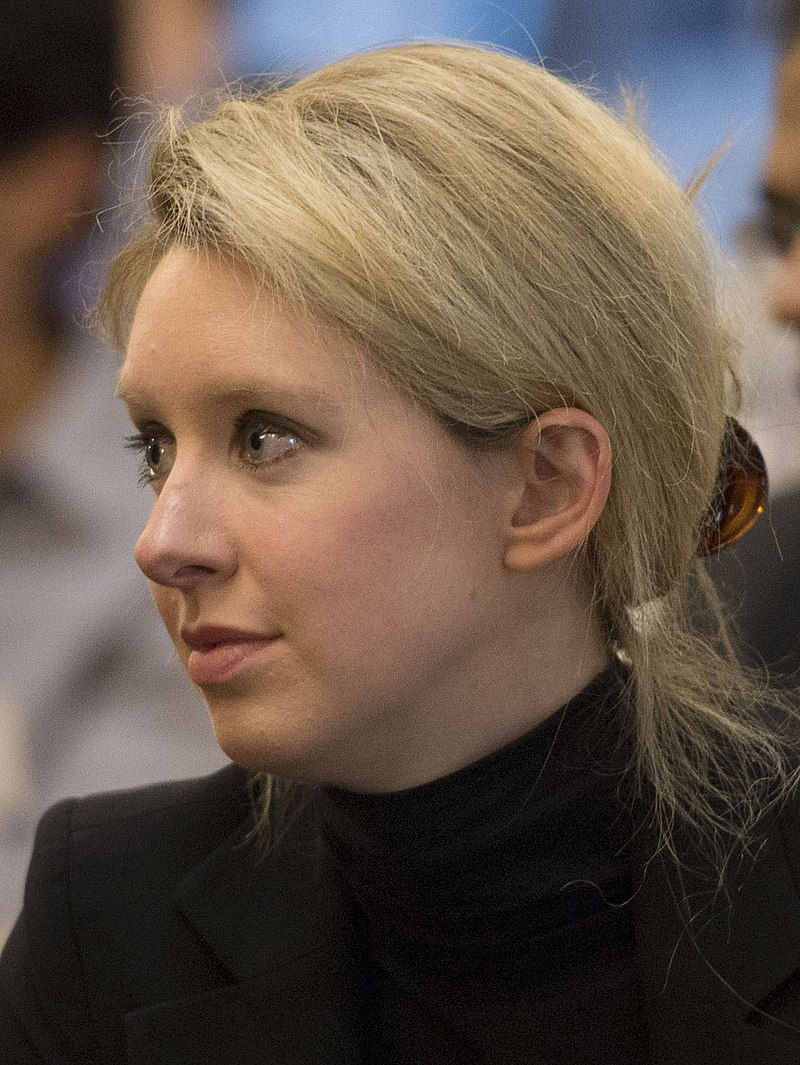"The Board of Fellows is composed of leaders with expertise in science, medicine, health care, finance, management, and marketing. Members are appointed, advise Dean Jeffrey S. Flier, MD, and help develop and implement strategies for financing educational and research programs at HMS."
Those are Harvard Medical School's own words about its "Board of Fellows," written in the same 2015 announcement that Elizabeth Holmes would be joining the Board. The evidence of her "expertise," after having dropped out of Stanford, was an on-paper worth of over a billion dollars, and a non-existent blood-testing machine. Holmes said the machine would be able to do multiple tests on a single drop of blood that, at the time, required several vials full, and a complete laboratory. In other words, Harvard Medical School found her fit to serve because she said she could accomplish something medically impossible, and because she appeared to have a lot of money.
Today, seven years later, Holmes will be sentenced to prison for criminal fraud. She could get 20 years, with prosecutors asking for fifteen, her lawyers requesting eighteen months of home detention, and the probation report recommending nine years. Given that her imaginary machine may have and, if allowed to go into wider use, would certainly have harmed many people, I predict she'll get twelve. She will probably be allowed to defer starting her time, because she is pregnant with her second child since being charged, and attractive rich white women are often allowed to wait until after delivery before going to jail on a pending sentence. Black women with no money and who bear the look of those who have lived on the street for most of their lives deliver their babies in prison, where they are allowed to raise them in a prison nursery until their first birthday, when the babies are sent elsewhere. (Did you know prisons include nurseries for infants? I didn't, until I toured Rikers Island in 1990, as an intern with the New York city public defender's office. I believe that babies in nursery bassinets inside a high security prison may be the saddest thing I have ever seen with my own eyes.)
In addition to Harvard Medical School, Holmes fooled some allegedly pretty bright folks:
- Rupert Murdoch
- The Walton family
- Betsy DeVos
- The Cox family of Cox Enterprises
- George Shultz
- Henry Kissinger
- William Perry, a former secretary of defense
- James Mattis, a future secretary of defense
- Gary Roughead, a retired U.S. Navy admiral
- Bill Frist, a former U.S. senator
- Sam Nunn, a former U.S. senator
- CEO Dick Kovacevich of Wells Fargo
- CDO Riley Bechtel of Bechtel
She won honorary doctoral degrees and numerous other honors from such sources as Time, Fortune, Forbes, and the Horatio Alger Association of Distinguished Americans, all on the strength of a magic machine that did not exist.
One can probably overlook the involvement of Rupert Murdoch, who is a publisher, and Henry Kissinger, who is a diplomat. They couldn't be expected to know much about medical machines. (Although both of them, come to think of it, could be expected to know rather a lot about bullshit, which should you give you pause the next time you read the Wall Street Journal.) But Harvard Medical School?
If Holmes had ever actually delivered her machine, it would have changed the world. Fast, cheap testing to help diagnose and treat disease. Lives would have been saved. Certainly, her paper billions would have become real ones. She'd have been a hero, a proven visionary genius, and deservedly very wealthy. But her machine was a fantasy, it did not exist, never would exist, because it could not exist, and Harvard Medical School should have known that. All Elizabeth Holmes ever had was a ridiculous idea that sounded very good. As my brother-in-law once offered for comparison, it's as though her entire pitch had been, "Wouldn't it be great if we could levitate?" and people took it seriously.
Holmes's idea sounded very good. But that's because it was too good. Too good to be true. Which Kissinger, Murdoch, and those others weren't in the ideal place to know. But Harvard Medical School?
Elizabeth Holmes fooled them all, almost. Today, she gets sentenced to years in prison for it. Her guileless, trusting investors are among her victims. But not Harvard. When she gets sentenced today for nearly killing a lot of people with an imaginary machine any medical expert would have known was impossible, Elizabeth Holmes shouldn't be alone. A medical authority we all tend to trust, and who gave her their highest stamp of approval should be in the box there with her.
Harvard should be there too.
UPDATE: I was close. Holmes has been sentenced to 11.25 years. Harvard Medical School will do no time.

No comments:
Post a Comment
You must have a Google account to comment. See my terms of use before commenting.